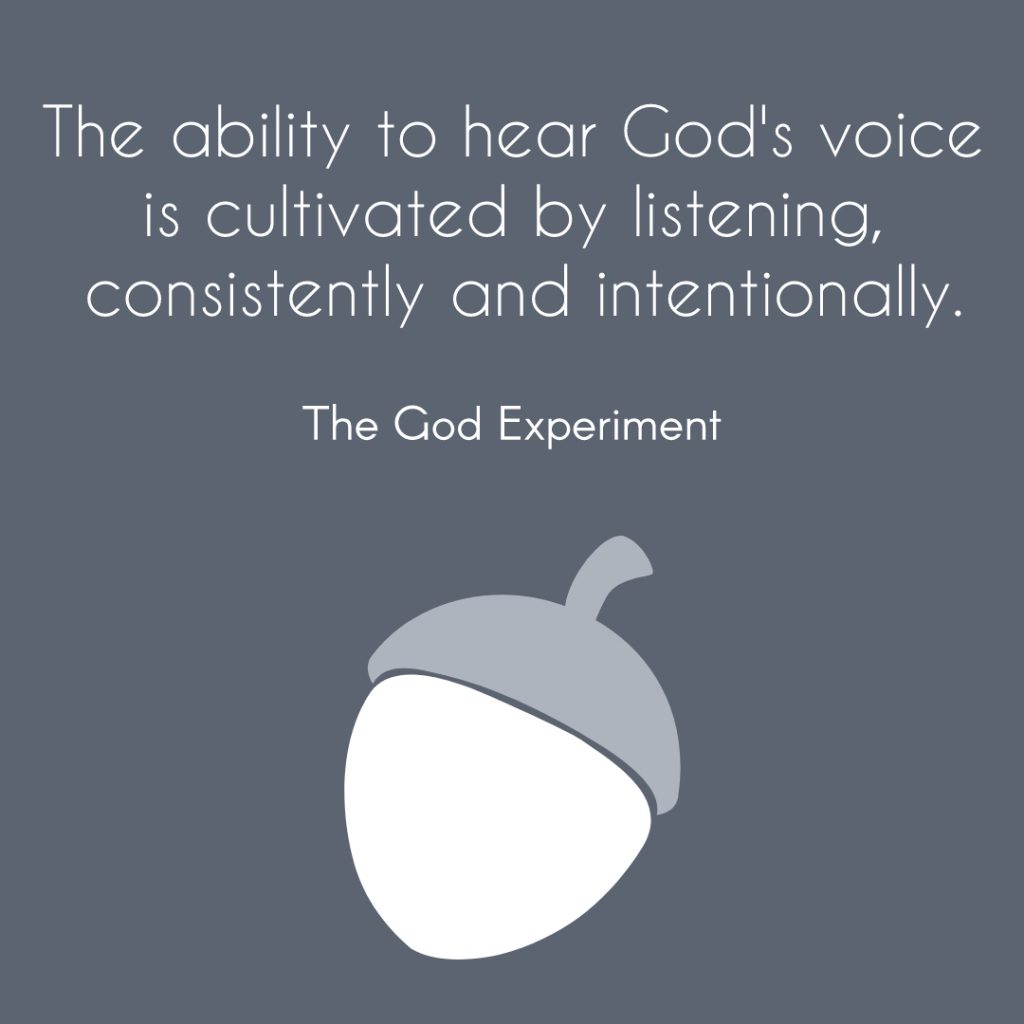
When I was a teenager I became very frustrated about this whole God thing. This was mostly because I would often hear about how we can talk with God, but no one ever really explained how to listen to Him. It rang true to me that I could have a relationship with God, but all the teachings I heard about this aspect of Christian spirituality didn’t really answer the question that I had, which is: “How do I hear God’s voice?”
I asked this question to a lot of people, and they all gave various answers, but the bottom line was basically: “you’ve got to figure it out on your own.”
This frustrating state of affairs is thousands of years old:
Job 33:13-14
Why do you complain to him
that he [God] responds to no one’s words?
For God does speak—now one way, now another—
though no one perceives it.
God speaks in many ways, but the real issue is whether we can perceive it. The sensitivity to hear God’s communication is something that must be cultivated. It is not a naturally occurring ability.
So I’ve made a list of the ways that I think God speaks to us.
1. Illumination of the Scriptures. The written text of the Bible is a record of God’s activity in history, but it also contains direct communication from God to humanity. However, it was written in a way that requires a relationship with Him to really understand and apply. In other words, God still has to speak directly to you in the Scriptures for them to have a strong impact on your life.
2. Teachings. This may be the most common way any of us really hear from God. However, it is usually not a conversation, because you are usually not speaking to God while the teaching is happening. If God speaks to you in a form of teaching, it should inspire you to respond.
3. Writings from Christian thinkers and mystics. There are so many amazing writers who can help us interact with God. They’ve been thinking and writing about God’s principles through many eras. Even if you are often exposed to spiritual teaching, sometimes it is good to get out of your comfort zone and read something from a perspective or an era that is not familiar to you.
4. Revelation. This is one of the highest echelons of communicating with God. Revelation means “a revealing.” I believe that revelation can happen today to anyone at any time. God wants a relationship with each one of us, and I see no reason why He would limit His methods of communication. I like to think of revelation as an experience of truth, because true revelation goes beyond mere knowledge.
5. Conversations in relationships. This could include informal discussions and counseling. God speaks through people, if we are looking for it.
6. Circumstances. God also communicates through the orchestration of our circumstances. Sometimes He paints us into a corner so we have to ask Him for help. Other times He blesses us out of nowhere to communicate His love.
7. Impressions or recurring feelings. If a new thought or feeling occurs continually, it may be the Holy Spirit. If it’s just the same old thought you’ve had for a long time, it probably isn’t God. If you get a new impression or feeling, hold onto it for a while and ask God to show you what it means.
8. Visions. A mental image which imparts layers of meaning in a singular image. A vision from God will have a lot of depth to it, and it will bring new information or ideas with it.
9. Dreams. Most dreams are not from God, but sometimes the most dramatic communication from God comes while we are asleep.
10. Conscience. If you feel a pull to do or not do something, it might be from God. Be patient and see if God is tugging on your conscience to get your attention.
11. Gut feeling and instincts. This is similar to impressions or feelings, but it comes with less information. A gut feeling for me is usually just a sense that something is right or wrong, but never why it may be right or wrong. If you’ve been working on your relationship with God for a while, your gut feeling is probably trustworthy.
12. Nature. There are two ways this communication happens. God can speak through nature. For example, as you watch a sunset, you see God’s loving creativity. Nature can also be the context of hearing God in a new way. For example, getting out of our routine and going for a hike in the woods can help us hear God.
Here’s an experiment you can try. Choose any one of these methods above and practice it. Intentionally determine to listen to God.
Whether or not God speaks is often dependent upon whether we want to hear Him. If we can demonstrate by our action that we want to hear Him, He will respond.
Be consistent and intentional with any of these methods, and you will to cultivate the art of listening to God.